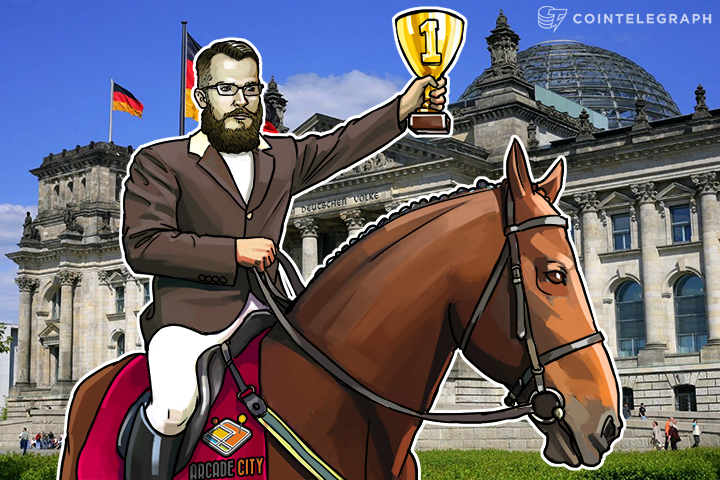New “Uber killer” ridesharing company Arcade City won first place at the GTEC Awards in Berlin, and with it a prize of 20,000 euros.
Ridesharing startup Arcade City won first place at the German Tech Entrepreneurship Center (GTEC) Awards in Berlin. The New Hampshire-based startup, which runs on a decentralized model based on swarm tactics and plans to integrate with Ethereum, won a prize of 20,000 euros with the award.
The win was announced by a post on Arcade City’s Facebook page, before the awards had been announced by GTEC. Christopher David, CEO of Arcade City, was blown away by the win and impressed with Berlin’s blockchain community.
David says:
“We are humbled by the support of the jurors and the Berlin blockchain community, which is way more organized and awesome than we had imagined. Berlin seems the logical place for our European headquarters when we expand into Europe later this year.”

Prize money to fund a spearhead into Austin
David intends to use the funding and momentum to assist newly expanded operations in Austin, Texas, where Uber and Lyft have recently abandoned because of ridesharing regulations requiring fingerprints for background checks.
David explains:
“For now we’ll use this money to help accelerate our push into Austin, where 15,000 riders and drivers are understandably impatient for the relaunch of our app. We’re opening an Austin office later this month to better serve their needs now that Uber and Lyft pulled out last week, so this support from the blockchain community will directly address the urgent transportation needs of the people of Austin.”
In addition to this attempt to corner the Austin, Texas market, Arcade City plans on making headway into Los Angeles, California.
Born from dissatisfaction from Uber
Arcade City was founded by David, previously an Uber driver, after an ultimately unsuccessful Bitcoin-powered activism battle with the city of Portsmouth, New Hampshire over new regulations aimed at ridesharing that effectively banned Uber from operating within the city limits.
Dissatisfaction with Uber’s centralized approach and fare cuts led David to strike out on his own and form a new ridesharing company.


